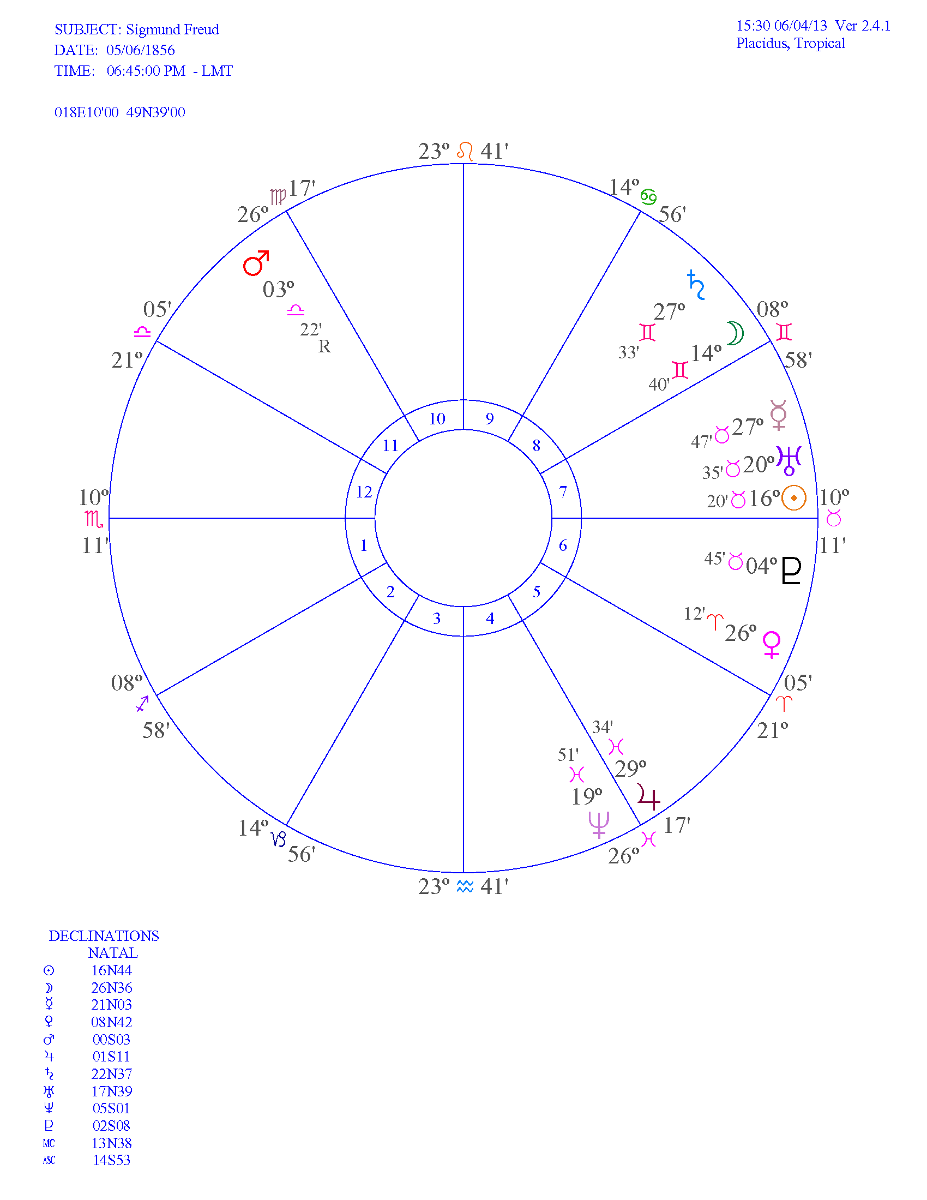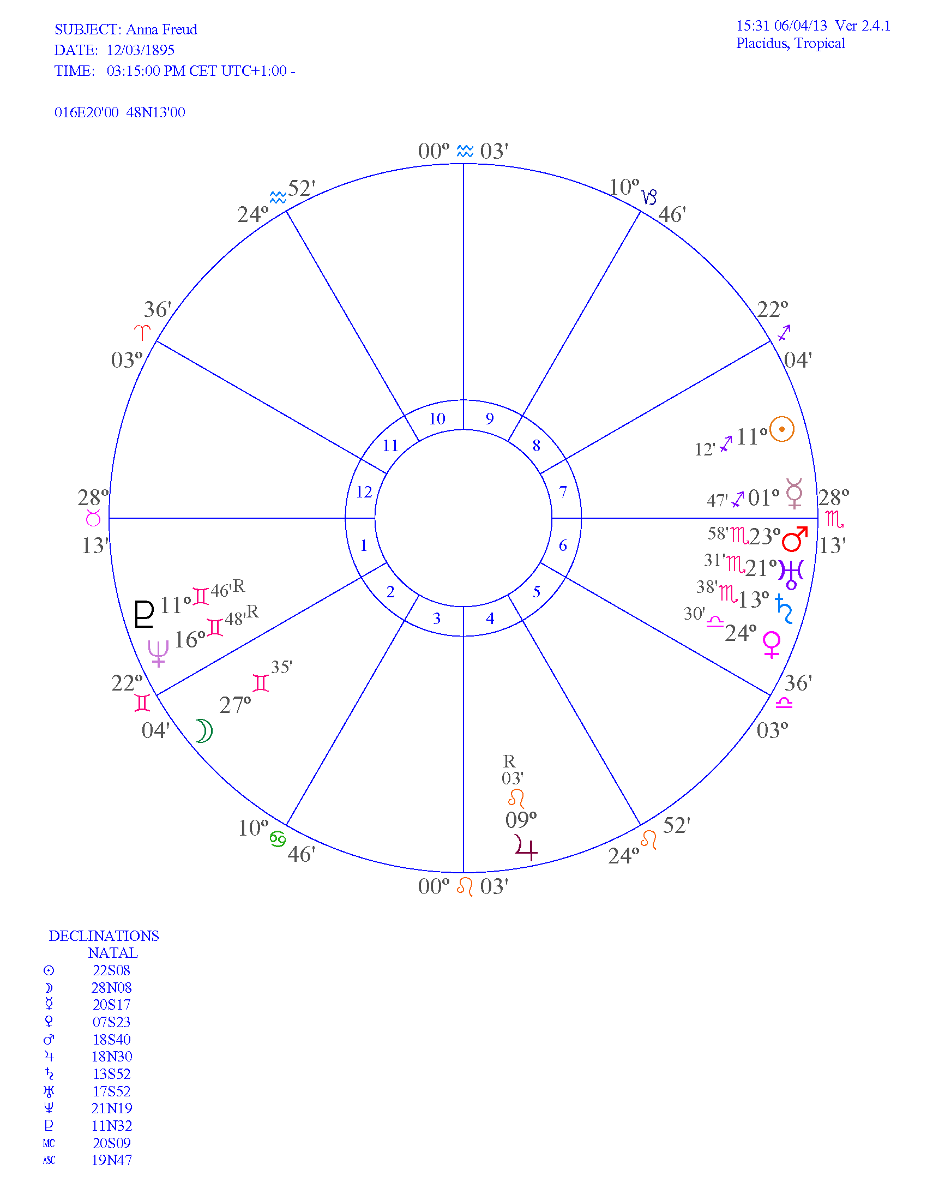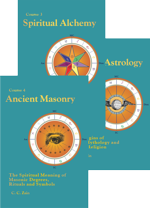|
|
Spiritual Meditations and Exercises Brotherhood of Light Lessons: Course Books on Astrology, Alchemy and Tarot
For Email Marketing you can trust
|
Sigmund Freud–Pioneering the Study of the Unconscious Mindby DW SuttonSubheadings: His Life and Times All Progressive Thinkers Do Battle With The Status Quo and Established Custom Freud’s Birthchart and Astrological Profile Freud’s Unconscious Sex Impulse A Stellar Diagnosis of Freud’s Health Problems Freud’s Aptitude Profile Freud Today Freud’s Contribution to Human Understanding The Astrology of Original Thinking Anna Freud Anna Freud’s Birthchart 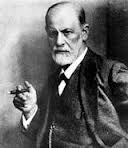
Sigmund Freud was one of the 20th Century’s most influential thinkers. As a pioneer in the field of unconscious mental activity and psychoanalysis his search to understand and explain how you got to be who you are dared him to investigate the unconscious mind. You may not agree with his ideas and theories but, more than any other thinker, he offered you new ways of thinking about your mind and mental life. Sigmund Freud was born May 6, 1856 at 6.30 pm LST (14E26). This is 6.45pm LMT at Frieberg, Moravia (18E010; 49N39) — now Pribor in the Czech Republic — his birth place. The data is from his father’s diary, but the birth time won’t be precise. He was probably born sometime between 6.20 and 6.40 pm LST. So the birthchart used in this commentary won’t be 100% accurate, but it will provide a wealth or data about Freud’s character and mental life not otherwise attainable. Controversy over the birth data dates back to 1954 — not the time but the date. Apparently the various archaic German letter forms and abbreviations used by his father are confusing and misleading and some researchers claim that Freud was born on March 6, 1856. But most scholars and biographers support the May 6 birth date. (See page 656 Freud: A Life For Our Time by Peter Gay and Astro-databank for all the details.) His Life and TimesSigmund Freud like all human souls was a victim of social circumstance and astrological events; and on January 19, 1881 a momentous astrological event occurred. That’s when the Age of Aquarius dawned; and Aquarius — the sign of humanity and knowledge-based facts — brought with it a radical shift in consciousness. It requested that every theory, idea and belief be put under the scientific microscope and thoroughly researched using the scientific method and Freud responded to this request by setting his sights on the scientific investigation of the human mind. Freud, the first born of eleven children, displayed academic brilliance and ambition at an early age and his parents ensured he got the best education. In 1873 he entered the University of Vienna as a medical student (he wanted to be a doctor) and between 1876 and 1882 he worked at the Institute of Physiology in Vienna. Between 1884 and 1887 he did research into the clinical use of cocaine and his own use of the drug damaged his reputation. During 1885 and 1886 he studied hypnosis in Paris. He was thirty years old and his own mind was becoming more and more intrigued with the complex workings of the human mind. When his attitude changed from an inquisitive explorer to a resolute mind detective he set his sights on unraveling and solving one of nature’s most occult mysteries. He first used the term psychoanalysis in March 1896. His idea that dreams provided clues to the unconscious and how it worked resulted in The Interpretation of Dreams, published in 1900. In 1902 he became a professor of neuropathology in Vienna and in 1905 published Three Essays on the Theory of Sexuality. The Vienna Psychoanalytic Society was formed in 1908 and Freud formed friendships with other mind researchers — notably Carl Jung and Alfred Adler. Freud and Jung started a seven year friendship in 1906, but revolutionary thinkers find collaboration and mergers difficult and these early mind explorers went their separate ways — Jung to pursue his idea of a ‘collective unconscious’ and Adler to focus on personal power and superiority as the primary unconscious driving force. When organizing his research work into a systemized group of facts Freud was orderly and thorough, yet he hated to be constrained by precise definitions. His mentality longed to think and write freely — his thoughts loved to speculate — yet he had a deep concern for objectivity and proof. He displayed an ardent single mindedness combined with a cautious need to check and recheck. He was an original thinker. His moods varied greatly from elation and self-confidence to doubt, depression and inhibition. The doubt and depression adversely affected his capacity to concentrate. Freud, the aggressive atheist (it was and still is scientifically trendy) regarded speculations about the purpose of life s pointless. He observed human behavior as simply a search for happiness. He saw pleasure and pain as temporary episodes — contentedness being a continuation of pleasure. With God out of the equation his own reasoning powers had to solve all the problems and this impossible burden resulted in depression — a mental health problem and his own personal black-hole. Freud, the loyal follower of the 19th Century positivists, drew a sharp distinction between uncheckable religious faith and checkable scientific inquiry. The scientific method denied religion any capacity to provide evidence-based truths and as instinctual urges were considered biological he was committed to a biological foundation for the unconscious. His essay Civilization and its Discontents (1930) explained his political position — the human animal with its biologically produced drives and needs must be held in check by the rules and regulations imposed by organized society. Freud reduced civilized living to a mental conflict, where mental harmony and peace of mind were virtually unattainable. No wonder he’s so disliked and criticized and yet an understanding of the mind is the essential first step when seeking to harmonize mental conflicts. Freud gathered data from his patients and scientifically assessed and arranged his observations. He was scientifically minded and employed the scientific method in all his research work, but he was trying to explain what many consider an unscientific unprovable hypothesis and his radical ideas naturally attracted great opposition. Many people find the contemplation of mental disorders, their causes and the importance of childhood experiences very unpalatable. To them the psychological damage caused by civilized life in its thoughtless pursuit of happiness is better left alone. But mental health issues, once denied and ignored, are now being recognized and given the same level of importance as physical health issues. In September 1886 after a four year engagement that involved much separation Freud married Martha Bernays. Martha was not an intellectual — she liked house work and family matters — and their marriage produced six children. Sophie the second daughter born 1893 died in 1920 and Anna born 1895 became a famous analyst in her own right. From 1886 to 1938 Freud had a private practice in Vienna and his theories and writings were the result of his work with his patients. During his life he experienced much poverty. He lived a simple financial life and regarded money as a commodity to satisfy his own needs and not to be thoughtlessly accumulated. He borrowed and was generous, but didn’t worry about not being able to give his wife expensive gifts. When a bonfire was made of his books in Berlin in May 1933 Freud was unperturbed. ‘What progress we are making’ he commented. ‘In the Middle Ages they would have burnt me. Now they are content with burning my books.’ He left for London on April 6, 1938 and died there on September 23, 1939. All Progressive Thinkers Do Battle With The Status Quo and Established CustomChances are you’re rather moderate, maybe a little radical in your thinking, but every now and then nature produces a dynamic original thinker. And these ‘free’ thinkers upset the status quo. Their bold and original ideas often provide amazing new insights that upset the belief systems of the dominant culture that’s determined to protect its social privileges. This explains why original thinkers are very often attacked, criticized, vilified and demonized by special privilege and vested interest. The power and selfishness exercised by the dominant culture has always been a major barrier to human progress. Humanity owes a great debt of gratitude to the original thinkers who, in the interest of truth, dared to break with established custom in their pursuit of truth and human understanding But a radical thinker who espouses progressive ideas and radical sex theories is bound to upset the status quo more than most. S/he naturally attracts great opposition. And any attempt to explain human nature in terms of unconscious driving forces is bound to be controversial. After all, what is the unconscious? Its very existence is denied and disputed by material science because it can’t be observed and measured. Freud’s Birthchart and Astrological ProfileFreud’s birthchart pictures an astrology code — an on-paper display of his unconscious mind’s thought-structure and character — and Hermetic Astrology provides a methodology for explaining what the code indicates.
The Sun is the marker for the unconscious drive for power, superiority and importance and its house position marks for the environmental cues that will directly influence its development. In Freud’s chart the Sun is the dominant planet and his unconscious desire for significance and personal importance was his strongest driver. He wanted to be somebody and with the Sun in house 7 (the public) his desire for social status was cued to the needs of people in general and the censure and attacks of opponents. The Sun was in Taurus — the marker for routine, thoroughness, the perfecting of detail and stability. It was in the second decanate where the sub-influence of Virgo gave an analytical trend to his fixity of purpose (Taurus). This decanate marks for struggle and during his life Freud experienced much poverty, delay, opposition, sacrifice and sickness, but his unusual supply of electromagnetism and his own mental force (dominant Sun) were able to cause many obstacles to crumble. But the conflict that resulted brought a battle for intellectual and scientific supremacy and he made a challenge out of life and rose above the physical limitations it imposed and the need for material pleasure. With the Sun conjunction Uranus Freud’s desire to be somebody merged with his desire for individuality and originality, and this thought compound dominated his unconscious psychology. It sourced his original ideas and his ability to deviate from the cut and dried tradition of the accepted script. He was a radical change-agent and he changed the way we think about ourselves. The intellectual planets, Mercury and Uranus, were both prominent in the third decanate of Taurus — the astro-marker for mastership — and, in Freud’s case, a full knowledge of the unconscious and how it works. This decanate marks for a capacity to use physical means to attain spiritual ends and while progress is slow the journey is sure and steady. Unbeknownst to Freud his spiritual growth (also Pluto in house 6) was largely determined by his personal power to help his patients overcome their psychological problems. With the Sun conjunction Mercury and Uranus — and all three planets prominent — Freud’s outstanding mental behavior was his innovative, original thinking. He was astrologically designed to tread new paths. The non-prominent (weak) Moon was in the second decanate of Gemini and his wife raised the children — Freud had other things to do. This decanate marks for fidelity and enhanced his chances of finding a congenial mate. It gave him a single, admirable focus — a high ideal to shout about — and by championing the unconscious mind and working to get it generally acknowledged and accepted Freud made the most of his life and lived up to his highest potential. Freud’s ascendant decanate is uncertain. The ascendant moved to the second decanate of Scorpio at 6.28.55pm so if he was born before this time it was in the first decanate which accentuates resourcefulness and the capacity to live a strenuous life to the maximum. It marks for very strong sexual impulses. The second decanate emphasizes the role of responsibility and the filling of positions of importance. It marks for vivid passions and incessant animal (sexual) impulses. And by sacrificing these impulses on the altar of devotion Freud may have reached truly spiritual heights. So both of these decanates feature incessant sexual impulses and Freud’s outstanding personality traits were a strong sense of duty and intense sexual desires. He knew, from personal experience, that his own unconscious was a storehouse of wild unruly sexual impulses, but not everyone has Scorpio rising. No wonder his fundamental idea of an unconscious filled with potent sexual desires is so controversial, yet to him it was all so obvious. His own sex drive provided him with an excess of creative energy and a natural ability to heal and by channeling his surplus sex-energy into socially useful work he was able to develop an understanding of the unconscious mind and how it functions. This doesn’t mean he got it right, but he was the pioneer and the work of the pioneer is never easy. Of course that discordant Scorpio marks for troublesomeness and there are many people who simply label Freud a troublemaker. (The MC is discordant so he did have reputational problems.) Freud’s Unconscious Sex ImpulseThe dynamic psychological drives and impulses that influence the conscious thinking and behavior reside in the unconscious part of the mind and the birthchart allows you to see what these unconscious drivers are doing. Mars is the marker for the sex urge and Mars in Freud’s birthchart provides an evolutionary record of his sex life — stored as memory in the Mars thought-cells in his unconscious soul-mind — and clearly reveals his own personal struggle with his incessant sexual urges. Mars — his sex impulse — in house 11 (friends) forms a sesquisquare (agitation) aspect with the Sun — his self-esteem — in house 7 (open opposition); a square (obstacle-frustration) aspect with Saturn the astro-marker for fear, guilt and remorse in house 8 (death) and an opposition (separation) aspect with Jupiter — the planet of religion — in house 5 (sex, pleasure and fun). And this high discord merger of sex, God and fear reveals a high level of unconscious mental discomfort that displayed itself as personal sexual conflict. And, if his claim that much illness and disease results from unresolved unconscious sexual conflict is true, his own health problems must have been caused by unconscious mental conflicts that turned on disease-specific biological mechanisms. He was fortunate to have Mars forming a high-harmony luck (trine) aspect with Mercury — the marker for deductive reasoning. It allowed him to relieve much of the Mars-Jupiter discord by making rational sense of his own sex drive. A Stellar Diagnosis of Freud’s Health ProblemsSciatica: Mars was opposition Jupiter and sesquisquare Uranus. Unregulated, non-stop mental activity and a dietary deficiency of calcium, vitamin D and vitamin B-1 caused a dysfunction of the parathyroid gland. Bronchial neuritis: Mars was sesquisquare Uranus. Heavy duty thinking in response to an emergency fight (Mars) situation resulted in parathyroid gland dysfunction and adrenal gland exhaustion. A deficiency of calcium, vitamin D and vitamin B-1 in the daily diet aggravated the situation and caused his nerves to become inflamed. Rheumatism of the back and arms: Mars in Libra (the lumber region of the physical body) was square Saturn in Gemini (the arm and shoulder region). The discordant Mars (anger)-Saturn (fear) thinking disturbed the functionality of the adrenal gland resulting in chemical imbalance. An excess of acid producing foods in the diet aggravated the situation. Nasal catarrh and sinus: Uranus and Neptune were prominent, Jupiter was square Saturn and the Ascendant was in Scorpio (the nose). Neptune caused the nerves to become hypersensitive and his daily diet lacked calcium, vitamin D and vitamin B-1. Indigestion: Moon was square Neptune and Mercury was square MC. Discordant heavy-duty thinking caused the over secretion of adrenalin and the withdrawal of blood from the digestive tract resulting in digestion problems. Constipation (due to a deficiency of dietary fiber): Saturn was square Mars and Jupiter. Cancer of the throat, mouth and jaw: Moon was square Neptune, Jupiter was square Saturn, Mercury (the jaw) is prominent; and Taurus (the throat) is prominent and discordant. The discordant Moon-Neptune, Jupiter-Saturn thinking resulted in a chemical imbalance that supported the development of cancer. The disease first occurred in 1923 and Freud had an operation that year. He suffered from cancer of the mouth for over 20 years. Freud’s Aptitude ProfileFreud had a unique and possibly rare prominent planet profile. Four planets had above average power — Sun, Uranus, Mercury and Neptune. They represent aptitudes that could, with training, be turned into ability. Freud was more than a practicing psychoanalyst and it is unlikely that these four planets will represent the astro-markers for that profession. It’s important not to confuse attitudes and behavior traits (the zodiac signs) with ability. Dominant Sun
Uranus
Mercury
Neptune
Freud TodayDeep, abstruse mysteries like the unconscious mind can only be unraveled by extraordinary minds possessing extraordinary intelligence and Sigmund Freud without a compass, roadmap or travel guide went in search of the unconscious mind. He had no predecessors to provide him with guiding lights. He probed the secrets of the unconscious and his findings continue to stir up bitter controversy and conflict. Today they are constantly challenged, criticized and discredited. Working on the frontiers of mental science Freud forced humanity to confront the source, and incomprehensible intrigues, of its thinking and behavior. He not only sought to provide a complete picture of the mind and how it functions he wanted to develop and explain the rules of psychoanalysis — to explain human nature in its entirety. To do this he coined psychological jargon — words like id, ego and superego — each representing a psychological process serving a different function. He claimed that environmental conflict results in anxiety and distress and people develop individual ways (defense mechanisms) for dealing with their conflicts. Sigmund Freud more than any other mind-explorer has influenced the way we currently think about our mental selves. His fundamental idea — that hidden behind the conscious awareness there’s an unconscious where dynamic sexual, aggressive and other impulses influence the mental and physical health — is difficult to grasp, and being forced to confront unsavory personal truths requires a level of honesty that few human souls possess. Yet we all struggle to make sense of, and come to terms with our own animal impulses and Freud simply observed this unspoken truth. At the start his audience was small, but now everyone has heard of Sigmund Freud. And many people don’t like what he has forced upon them. Freud’s Contribution to Human UnderstandingFreud discovered how unconscious thought-forces influence the conscious thinking and behavior. He developed the method of free association and dream interpretation — the basis of psychoanalysis. He developed concepts of the id, ego and superego. His sexual theories — the Oedipus complex, penis envy, castration anxiety — remain controversial. His work has made us re-think human nature and now we attempt to understand antisocial behavior in terms of unconscious forces and their socialization. But because we are all different there can’t be a one-size fits all when it comes to understanding the human sex drive so maybe Freud did overplay the role of sex. The sex urge is a universal impulse — every soul has one — yet the strength of the drive varies greatly between individuals and so does its functionality. The external environment in which the drive expresses is also subject to cultural change, but the evidence suggests that the impulse that causes a greatest pleasure can also cause the greatest pain. To the end Freud was emphatic: ‘I am quite sure I made no mistake when I emphasized the predominance of the sex instinct.’ So it’s no wonder that many people can identify with his claims and many people can’t! And of course Freud was unaware that an individual’s birthchart provides an evolutionary history of their sex-life experience and that past experience determines current conduct. Some things take forever to understand. Freud was an enormously influential thinker. He introduced the concept of an unconscious mind and emphasized dream analysis and the theory that mental disturbance was rooted in early childhood experience. He understood that human behavior was largely governed by unconscious drives. He commented: ‘We are only at the beginning of a new science. I was successful in digging up buried monuments from the substrata of the mind. But where I discovered a few temples others may discover a continent.’ Freud started a revolution in the way we think about our personality development and mental selves. His influence is incalculable. He helped humanity to understand its mental self. We should be grateful. Freud claimed to have ‘discovered some important new facts about the unconscious psychic life, the role of essential urges and so on.’ Other minds will add to our self-knowledge. Elbert Benjamine made a gigantic leap in human understanding when he explained these fundamental urges in a personal evolutionary context. He discovered that your birthchart is an evolutionary record of previous experience and in the Hermetic System of Astrology he explains how you can use the astro-data provided by your birthchart to reach your highest potential. The Astrology of Original ThinkingThe foundation of God’s great evolutionary plan is mental diversity and there’s great variation. All intellectual activity originates in the unconscious soul-mind — not the brain — and researchers claim that the least common mental behavior is original thinking. Maybe 1 person in 15,000 has an innate potential to engage in dynamic original thinking and then the drive to conform (Sun) and the fear of being different (Saturn) can step in and quash the impulse. The truly original thinker is best viewed as an evolutionary oddity. S/he has a mental make-up that’s the result of an unusual developmental experience and s/he’s programmed to think differently and to function on a mental level where new and original ideas are the norm. And it’s all made possible by a biochemical profile that produces an electrochemical condition that permits, encourages and sustains the development of original thinking. Uranus is the planet of original thinking and he’s no ordinary planet. He marks for the ability to perceive and think differently. Being unconventional and ahead of his time his world-view is out of step with the conventional thinkers who, sooner or later, simply play catch-up. Uranus not only marks for an interest in unusual subjects — biology, psychology and astrology — he sources the capacity to dig deep and unearth amazing new truths. He gives a keen insight into human psychology and how the mind processes experiences into thoughts and feelings. These insights often occur through intuition — an unconscious (Uranus) mental faculty that can provide a superior perception of reality to that provided by conventional deductive reasoning (Mercury). Uranus is the planet of short cuts and quick methods. His thought-cells display inventiveness and naturally work to find new and better ways of doing things — especially teaching. They also mark for charisma — a dynamic capacity to impress others and exercise magnetic control. His radical views and insights naturally disrupt the status quo resulting in controversy and dissension and, in the case of astrology and ESP, unscientific accusations and the refusal to investigate. Those individuals who are born with a dominant or prominent Uranus have a potential to develop original thinking skills. They’re the norm violators who can depart from established lines of orthodox thinking and tread new paths. S/he innovates, prefers facts to beliefs and is astrologically predisposed to disassociate mental images and engage in radical upside-down thinking. S/he can view things from a new and unique perspective, but the thinking always operates in a local environment and is conditioned by experience. A prominent Uranus often marks for mental brilliance and occult penetration. There’s an innate potential to understand thought processes, human nature, psychology and astrology. Sigmund Freud was a genuine original thinker. We can only imagine the intellectual and emotional states he experienced as he slowly unraveled and gained insight into the mysterious working of the unconscious mind. And his extraordinary intellectual journey saw him live up to the potential mapped by the Sun-Uranus conjunction in his astrology code. Anna Freud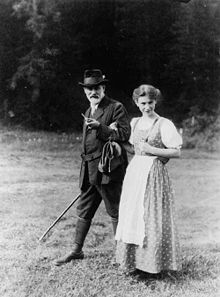
Freud’s daughter, Anna, followed in her father’s footsteps and became a famous analyst. She was his favorite daughter and colleague, and in 1938 she traveled to England with her parents. She started her career as an elementary school teacher and then moved onto the study of the mind. She influenced the field of psychoanalysis specializing in children and child psychology. She established the first day nursery in Vienna and founded the Hampstead Children’s Therapy Clinic in London. During World War 2 she worked with orphaned children. Anna Freud authored a number of books and was honoured with many degrees. In 1967 she was named a Commander of the British Empire. She passed to inner-plane life on October 9, 1982. Anna Freud’s Birthchart
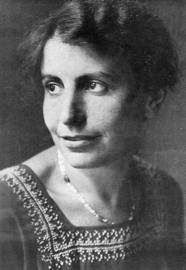
Anna Freud was born December 3, 1895 at 3.15pm MET. The place was Vienna, Austria (16E20; 48N13). Data researcher Grazia Bordoni quotes a letter by her father. The planets with above average power in her chart are Mercury, Sun, Jupiter and Pluto. Mercury, the planet of mental expression — in speech and writing, is the dominant planet. It marks for intellectual activity, alert reasoning processes and the ability to compare, calculate and write. Its prominence marks for clear cut objective thinking, mental keenness and a talent for expressing information clearly. Mercury is the astro-marker for children and in her chart it signifies an interest in child psychology. Her prominent Sun marks for a very active power thought-cell group. It sourced her executive ability and drive for social status. The prominent Jupiter and dominant Sagittarius mark for a strong religious impulse that most likely displayed itself through her humanitarian work with children. And when her religious impulse blended with Pluto, the universal welfare planet, Anna’s thoughts and actions soared to truly noble heights. Anna and her father had several astrological features in common. The Sun and Mercury were both prominent, the Moon was in Gemini, Mercury was conjunction Uranus, the Sun was in house 7 and he had the Sun in Taurus and she had her ascendant there. But all things considered they were very different people. Uranus, the planet of psychology, was not prominent in Anna’s chart, but Pluto, the planet that can understand the inside working of things gave her talents that her father didn’t have: And the Neptune-Pluto conjunction in house 1 of her chart marked for an unconscious thought force that displayed itself as a highly spiritual personality. Sigmund Freud was the original thinker who dug up previously unknown information and made it accessible to other minds. And the intelligence that discovers new knowledge is different to the intelligence that learns and uses the knowledge that’s been discovered. So Anna stood on her father’s shoulders, but then she raised the bar. She strove for and reached her own level of social usefulness and spirituality and lived up to the potential mapped by the Neptune-Pluto conjunction in her astrology code.
|
|
||||||||||||||||||||||||||||||||||||||||||||
|
||||||||||||||||||||||||||||||||||||||||||||||






